After The People’s Republic of China (PRC) published 22 new guidelines on June 21 that allow its courts to try in absentia and sentence to death “Taiwan independence separatists,” the Mainland Affairs Council (MAC) upgraded its travel advisory to the PRC and the Special Administrative Regions (SARs) of Hong Kong and Macau to level 3, or “orange” alert, meaning Taiwanese nationals shouldn’t visit unless “absolutely necessary.”
Surveying commuters in Taipei’s bustling Main Station on Thursday, the Taipei Times found only 20 percent of people we spoke to had not heard that the travel alert had been raised to orange.
Similarly, only 30 percent had not heard of a Taiwanese traveler who was briefly held in Hong Kong due to his name being similar to a former Taiwan Statebuilding Party (TSP) legislator named Chen Po-wei (陳柏惟) when Romanized.
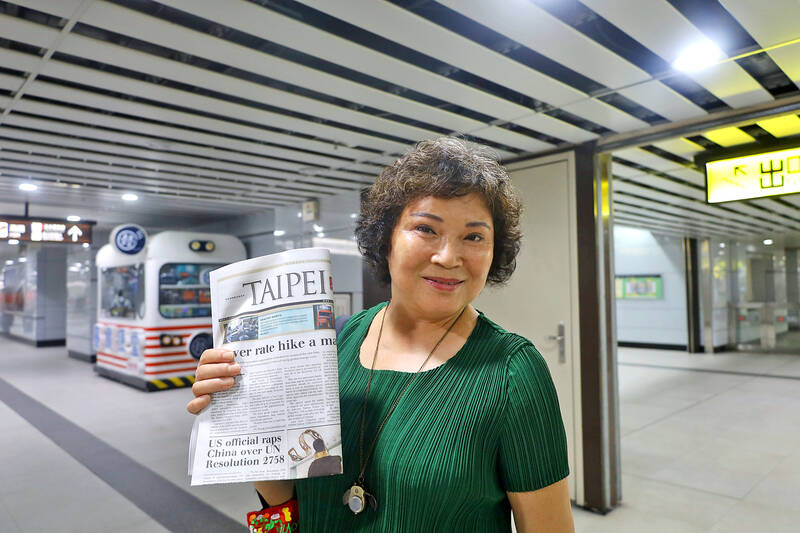
Photo: Daniel Oh
When asked if they’d consider visiting the PRC or the two SARs for work or tourism given the current travel advisory, 70 percent of respondents said they would not, with most expressing some concern for their safety in light of current cross-strait tensions. A troubling 30 percent of respondents said they’d even been worried transferring planes in a PRC or SAR airport.
However, Chang Cheng from New Taipei City said he’d visit Hong Kong again as he’d enjoyed his time there before and had a lot of friends in the territory. Similarly, 18-year-old Lin Chung-che, who has previously visited Shanghai, said he’d happily travel to the PRC or Hong Kong, although he has no immediate plans to do so.
A retired science teacher from Taipei who identified as Joe Kuo told the Taipei Times he’d been to the PRC 20 times in the past for tourism and work but wouldn’t go now due to safety concerns.
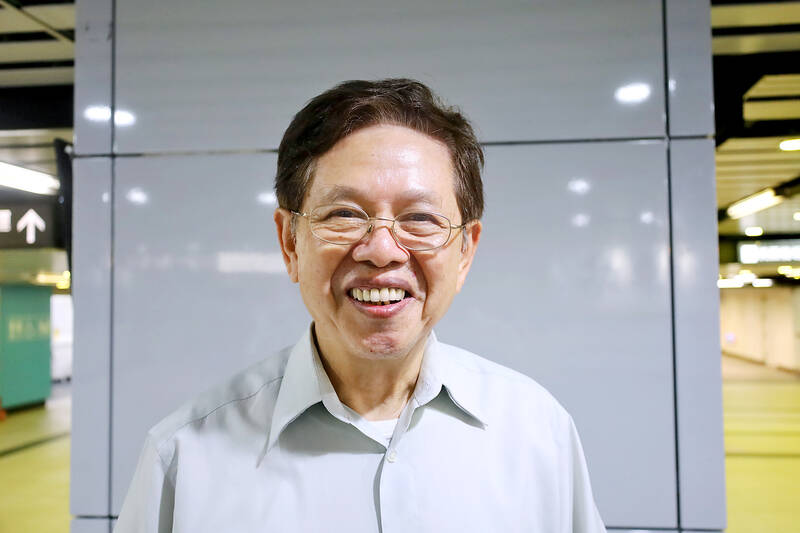
Photo: Daniel Oh
Similarly, 70-year-old retiree Lin Yu-chuan who has visited Hangzhou, Xiamen and Shanghai in the past and describes the landscape of the PRC as “beautiful” would not visit. Lin also bemoaned Hong Kong’s reduced appeal as a destination as somewhere that was “no longer lively” and in “economic decline,” which should “serve as a warning to Taiwan.”
Alice Lin, a 27-year-old teacher in New Taipei City, said she wouldn’t go in the current climate, although she maintains a dream to visit the pandas in their home environment of Sichuan and would do so should travel safety improve.
Only half of respondents said they’d let PRC policy influence travel opportunities in Myanmar, Laos or Cambodia — Southeast Asian countries with which Beijing maintains close ties and extradition treaties.
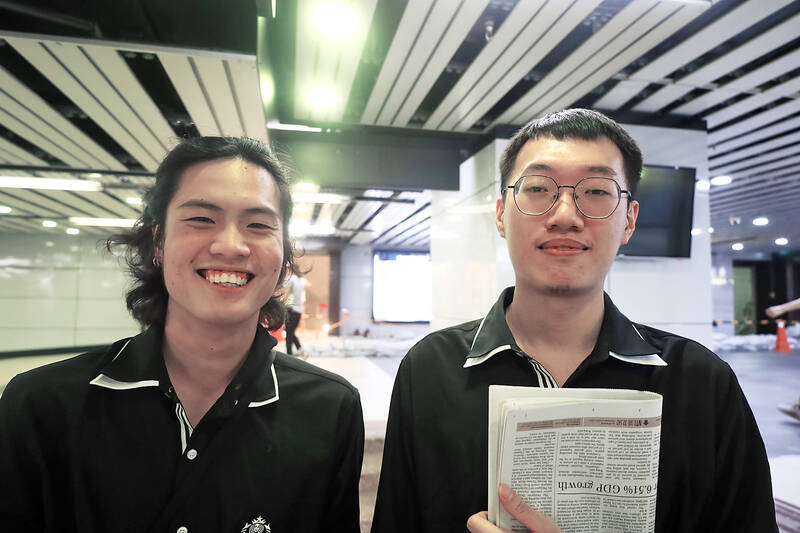
Photo: Daniel Oh
Kuo told the Taipei Times he simply wouldn’t visit any country that was “Communist” including Vietnam and North Korea.
When asked if they were concerned if any Western countries, which currently exclude “political offenses” from their extradition with China, might align with Beijing in the future, only 30 percent agreed, with most considering Western destinations “safe” in both the short and medium term.
However, Lin Ching-yu, a 36-year-old nurse, said “politics is always changing, you have to keep an eye on it and check up-to-date government warnings.”
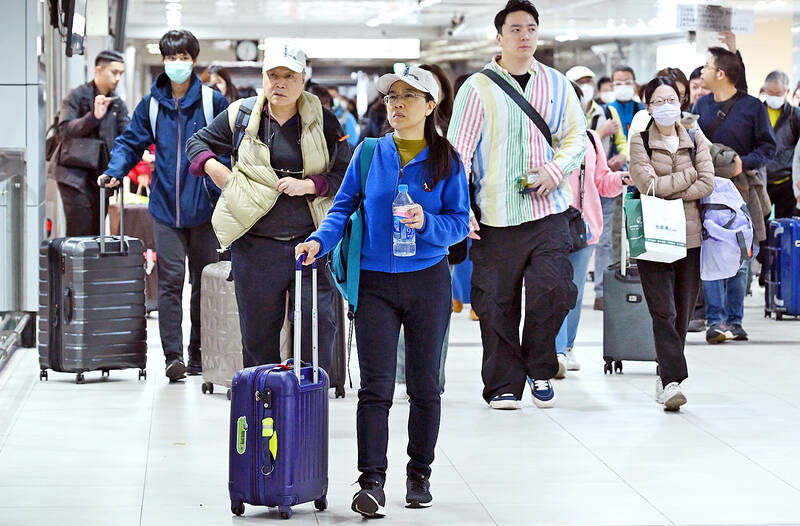
Photo: Liao Chen-huei, Taipei Times
A freelancer from Tainan, Miss Liu, expressed concerns for any Taiwan national traveling to the Russia Federation, given Moscow’s strengthening ties with Beijing.
Of those we spoke with, only 30 percent felt they had done something that might make them a target of Beijing, including attending a Tiananmen Square Massacre vigil, arguing with PRC citizens online and gathering outside the Legislative Yuan to protest the recent reform bill.

This month the government ordered a one-year block of Xiaohongshu (小紅書) or Rednote, a Chinese social media platform with more than 3 million users in Taiwan. The government pointed to widespread fraud activity on the platform, along with cybersecurity failures. Officials said that they had reached out to the company and asked it to change. However, they received no response. The pro-China parties, the Chinese Nationalist Party (KMT) and Taiwan People’s Party (TPP), immediately swung into action, denouncing the ban as an attack on free speech. This “free speech” claim was then echoed by the People’s Republic of China (PRC),

Exceptions to the rule are sometimes revealing. For a brief few years, there was an emerging ideological split between the Democratic Progressive Party (DPP) and Chinese Nationalist Party (KMT) that appeared to be pushing the DPP in a direction that would be considered more liberal, and the KMT more conservative. In the previous column, “The KMT-DPP’s bureaucrat-led developmental state” (Dec. 11, page 12), we examined how Taiwan’s democratic system developed, and how both the two main parties largely accepted a similar consensus on how Taiwan should be run domestically and did not split along the left-right lines more familiar in

Many people in Taiwan first learned about universal basic income (UBI) — the idea that the government should provide regular, no-strings-attached payments to each citizen — in 2019. While seeking the Democratic nomination for the 2020 US presidential election, Andrew Yang, a politician of Taiwanese descent, said that, if elected, he’d institute a UBI of US$1,000 per month to “get the economic boot off of people’s throats, allowing them to lift their heads up, breathe, and get excited for the future.” His campaign petered out, but the concept of UBI hasn’t gone away. Throughout the industrialized world, there are fears that
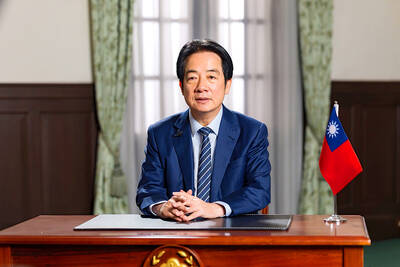
The Democratic Progressive Party (DPP) controlled Executive Yuan (often called the Cabinet) finally fired back at the opposition-controlled Legislative Yuan in their ongoing struggle for control. The opposition Chinese Nationalist Party (KMT) and Taiwan People’s Party (TPP) acted surprised and outraged, but they should have seen it coming. Taiwan is now in a full-blown constitutional crisis. There are still peaceful ways out of this conflict, but with the KMT and TPP leadership in the hands of hardliners and the DPP having lost all patience, there is an alarming chance things could spiral out of control, threatening Taiwan’s democracy. This is no